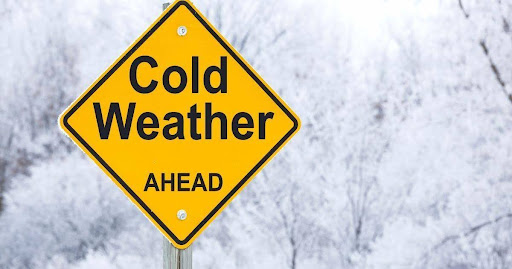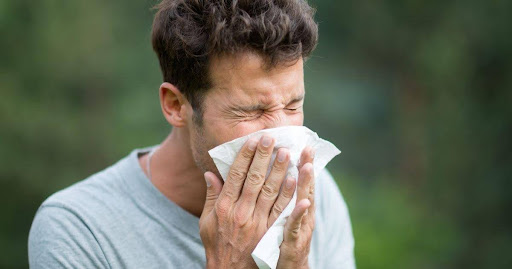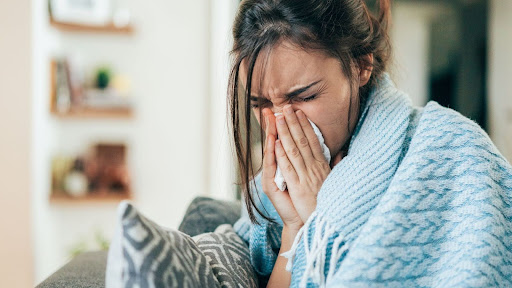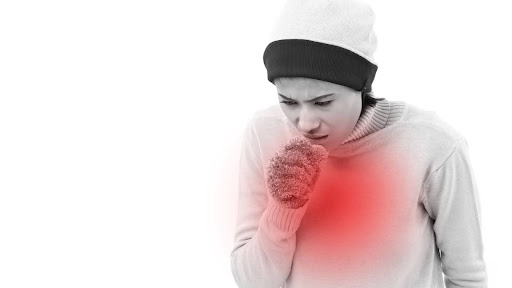Why You Get Allergies in Cold Weather and How to Treat Them
4 min read
By DocGenie , Published on - 16 November 2024Even though many believe that winter provides a break from seasonal allergies, several individuals still experience allergy symptoms. In heated homes, indoor allergens like mould, dust mites, and pet dander can thrive and cause allergic reactions. Dry, chilly air can also irritate the nasal passages, resulting in congestion and sneezing. Let’s delve into the reasons behind this and how to manage these pesky allergies.

Understanding Winter Allergies
Pollen isn't the only thing that causes allergies, despite what many people think. A variety of factors can trigger allergy symptoms during winter, including:
- Indoor Allergens:
- Dust mites: These microscopic organisms prefer warm, humid settings, which are typical in heated homes during the winter.
- Pet dander: Pet hair and dander can accumulate on furniture and carpets, especially in enclosed spaces.
- Mold: Wet places in your house, such bathrooms and basements, can harbor mold spores.
- Cockroach allergens: All year long, cockroaches can cause allergies, but in the winter, they may become more active indoors.
- Outdoor Allergens:
- Pollen: Some trees and weeds can release pollen, especially on warmer winter days, even though pollen levels are often lower in the winter.
- Cold air: Sneezing, congestion, and runny nose are some of the symptoms that can result from cold air irritating the nasal passages.
Common Winter Allergy Symptoms

Winter allergy symptoms can often mimic those of a cold or flu, making it difficult to distinguish between the two. Here are some common symptoms that can indicate winter allergies:
- Respiratory Symptoms:
- Sneezing: Allergies can be identified by frequent sneezing bouts.
- Runny Nose: Allergies are frequently linked to a clear, watery nasal discharge.
- Congestion: Breathing can be challenging due to sinus pressure and a stuffy nose.
- Cough: Postnasal drip may be the cause of a chronic cough, particularly a dry, hacking cough.
- Ocular Symptoms:
- Itchy, Watery Eyes: Redness, itching, and tears of the eyes are symptoms of allergic conjunctivitis.
- Systemic Symptoms:
- Fatigue: Sleep disturbances brought on by allergy symptoms may leave you feeling drowsy and exhausted.
- Headache: Sinus congestion can lead to headaches and facial pressure
If you're experiencing these symptoms, it's important to consult with a healthcare provider to determine the underlying cause and receive appropriate treatment. You can consult a doctor on DocGenie.
How to Treat Winter Allergies
- Managing Allergies on High Pollen Count Days
- on days with a high pollen count.
- After being outside, take a shower and change your clothes.
- Over-the-Counter Medications:
- Antihistamines: These medications can assist with itchy eyes, runny noses, and sneezing.
- Decongestants: These medications can help reduce congestion.
- Nasal corticosteroids: These medications can reduce inflammation in the nasal passages.
- Prescription Medications:
- Allergy shots: These shots can help desensitize your body to allergens over time.
- Leukotriene modifiers: These medications can help reduce inflammation in the airways.
- Home Remedies:
- Saline nasal spray: This can help remove irritants and moisturise the nasal passages.
- Warm liquids: Sipping warm liquids, like tea or broth, can help ease congestion and a sore throat.
- Humidifier: By adding moisture to the air, a humidifier can help soothe dry nasal passages.
When to See a Doctor
A healthcare professional should be consulted if your winter allergy symptoms are severe, ongoing, or substantially affecting your quality of life. A medical expert may correctly identify your particular sensitivities and suggest the best course of action.
Here are some signs that you should seek medical attention:
- Severe Symptoms: If your symptoms, such as sneezing, runny nose, congestion, or itchy eyes, are significantly worse than usual or interfering with your daily activities, it's time to consult a doctor.
- Persistent Symptoms: If your allergy symptoms persist for weeks or months, despite over-the-counter medications and home remedies, it's important to seek medical advice.
- New or Worsening Symptoms: If you're experiencing new allergy symptoms or if your existing symptoms are worsening, it's advisable to consult a healthcare provider.
- Difficulty Breathing: Wheezing or severe congestion may be signs of a more severe allergic reaction and need to be treated right once.

By seeking timely medical attention, you can receive appropriate treatment and manage your winter allergies effectively. You can consult a doctor from the comfort of your home with DocGenie.



